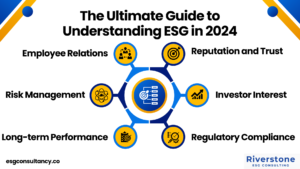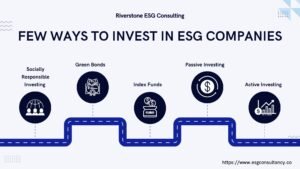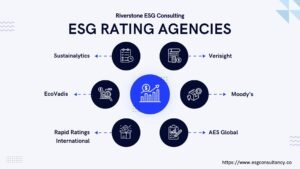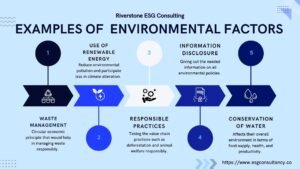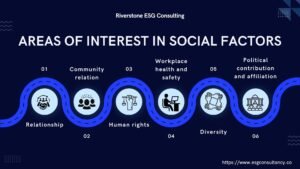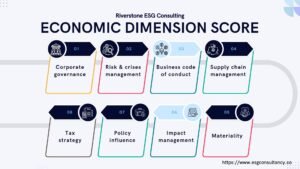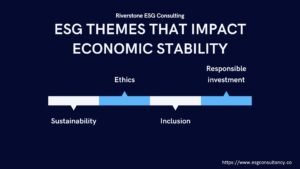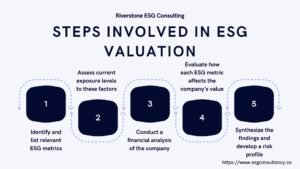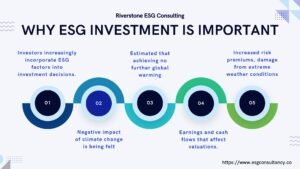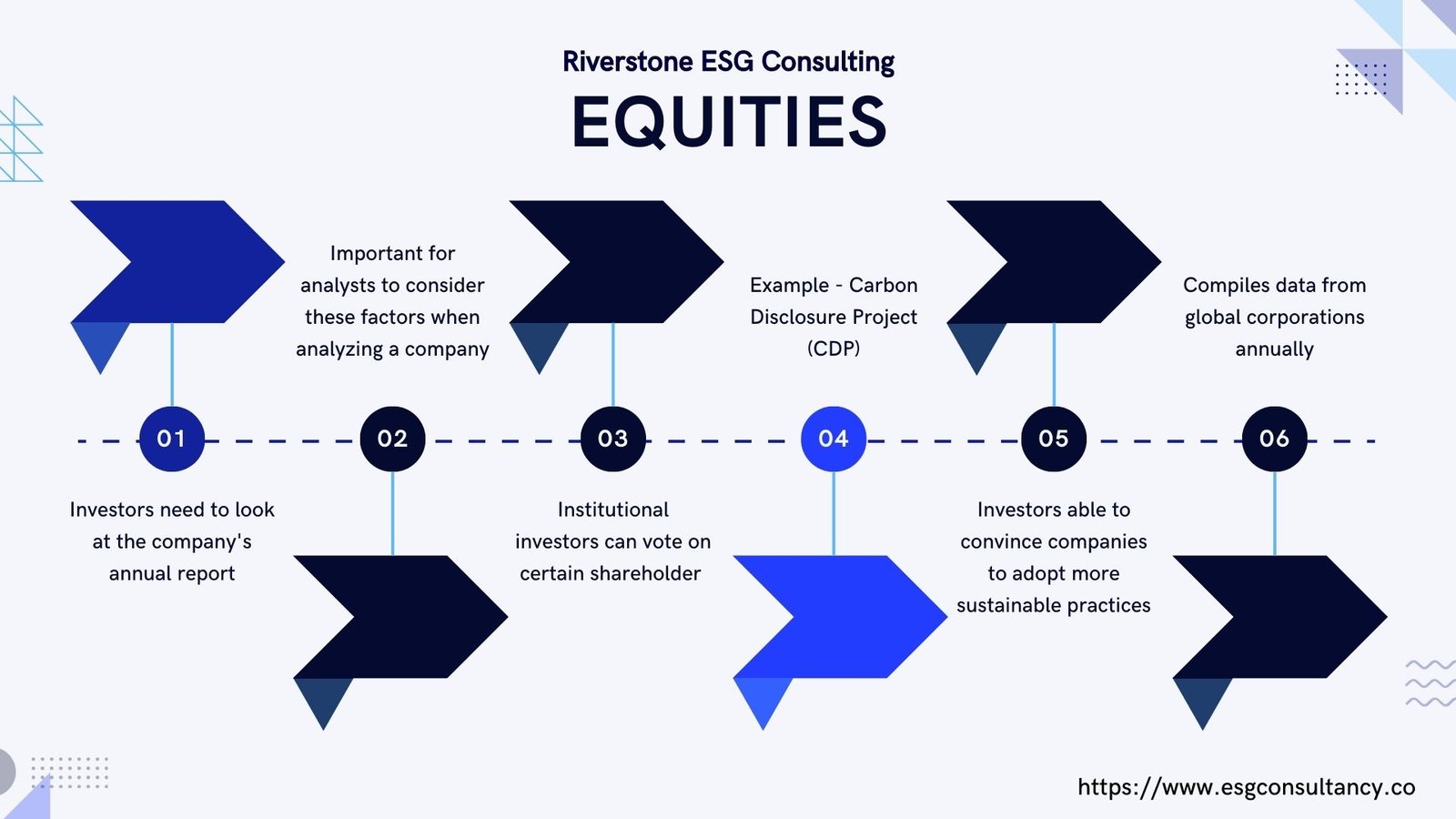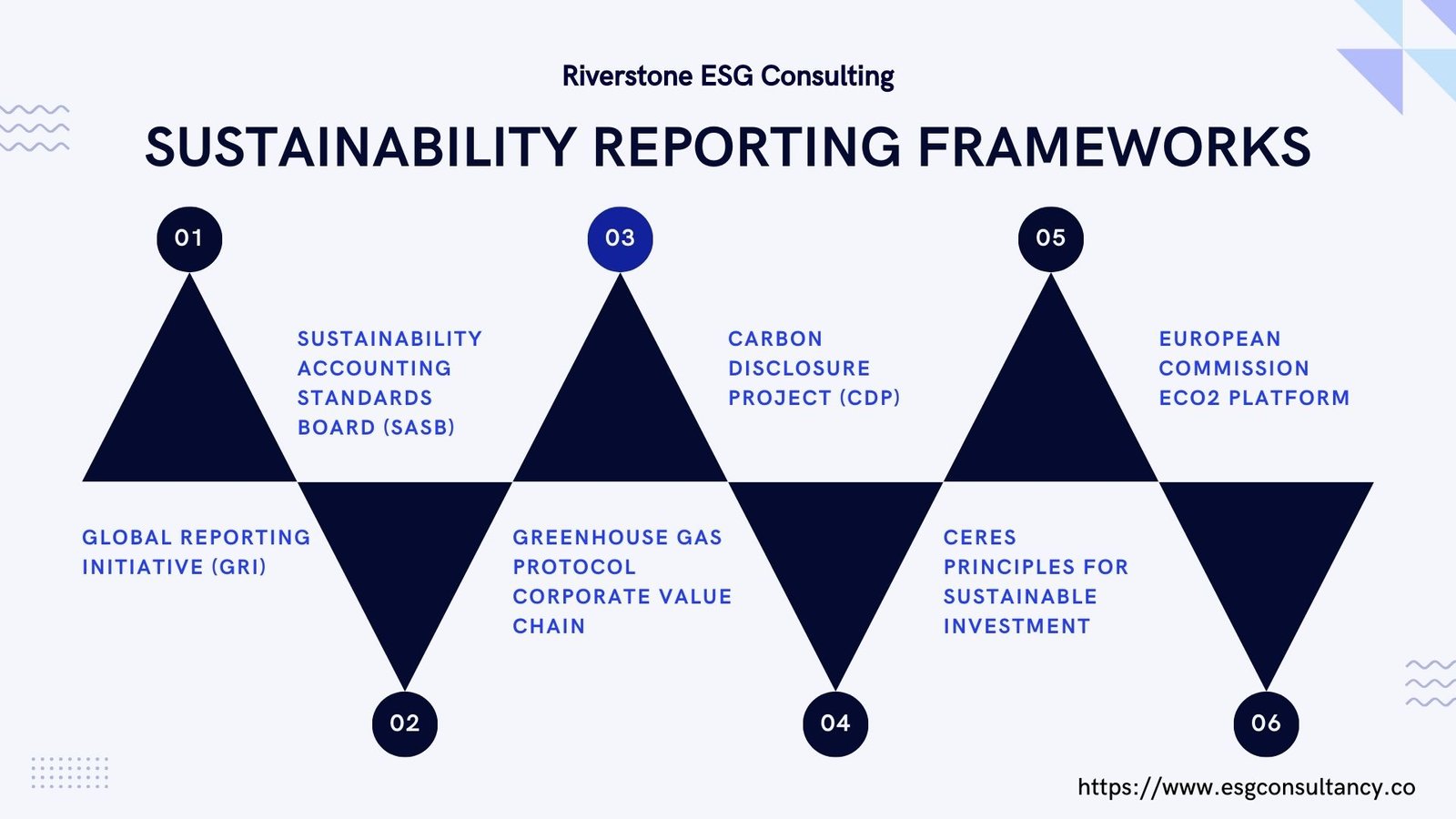Unlocking the Potential: Maximizing ESG Value in Your Company
Evaluating the Benefits from the ESG Value
There are a number of benefits that can be gained from evaluating the ESG value chain:
- Improved Risk Management:- Evaluating the ESG value chain can help organizations identify and manage risks related to environmental, social, and governance issues.
- Enhanced Corporate Reputation:- Organizations that are seen as leaders in sustainable finance can gain a competitive edge over those that are not.
- Increased Access to Capital:- Organizations that demonstrate strong ESG performance may have an easier time accessing capital from investors who prioritize sustainable finance.
- Greater Efficiency and Effectiveness:- Evaluating the ESG value chain can help organizations improve their efficiency and effectiveness by identifying action and ways to reduce environmental and social impacts.
- Increased Access to International Capital:– The sustainable finance space is becoming increasingly international in nature.
How to Evaluate ESG Value
There is no one-size-fits-all approach to evaluating ESG value. However, there are a few key steps that can help organizations quantify and communicate their sustainable finance value:
- Identify the Scope of Sustainable Finance:- Organizations should determine how they define sustainable finance and identify the specific environmental, social, and governance issues that they will consider.
- Quantify Environmental, Social, and Governance Impacts:- Organizations should quantify the environmental, social, and governance impact of their activities. This could involve using tools such as impact assessments or materiality assessments.
- Evaluate Management Systems:- Organizations should assess how well their management systems address environmental, social, and governance issues.
- Communicate Sustainable Finance Value:- Organizations should communicate their findings in a way that is easy for investors to understand. This could involve developing sustainability reports or ESG scorecards.
Why you should implement the ESG value in your company
- Shareholders prefer sustainable companies. A recent survey revealed that 87% of shareholders agree or strongly agree that a company’s environmental, social, and governance policies are important considerations when deciding where to invest their money.
- The Sustainable Development Goals call for action from the private sector
-
- The United Nations launched a set of Sustainable Development Goals in 2015 as part of an effort to target economic inequality and climate change by 2030.
- These goals place a huge focus on engagement from the private sector in order to achieve these objectives.
- Transparency is key for investors
-
- Investors want transparency about how investments affect ESG issues such as;
- climate change
- risks and opportunities
- poverty alleviation, & inclusion,
- human rights
- deforestation
- Tax evasion.
- Competitiveness will suffer if organizations are not implementing sustainable finance. More than half (53%) of investors said they would cut back on investments in companies with no significant ESG policies or initiatives.
- There is a growing trend towards sustainable investing
-
- The amount of money invested by organizations committed to ESG-related causes has grown 65% since 2010, reaching $3 trillion globally in 2014.
- This trend is expected to accelerate as more sectors begin to implement sustainable finance practices, such as the food & beverage industry.
- Legislation is building momentum for responsible corporate behavior. In June 2015, the Obama administration unveiled several new policy proposals aimed at curbing climate change and reining in carbon dioxide emissions.
- There is a push towards zero deforestation. In May 2015, a coalition of more than 30 corporations including Unilever, Nestle, and Mattel announced that they will no longer purchase products that contribute to deforestation.
- The Principles for Responsible Investment are gaining momentum. In April 2014, an additional 309 investors representing $24 trillion in assets under management joined the PRI initiative, bringing the total number of signatories up to 715 representing $59 trillion in assets under management as of June 2015.
- It’s what millennials want. A recent survey by Ernst & Young found that 79% of millennial investors around the world believe it is important for companies to have a positive impact on society and 71% want to work for a company that makes a positive contribution to society.
- It’s good for your brand
-
- In 2012, Cone Communications released results from an annual corporate reputation survey which showed that “green” was the number one reputation characteristic among consumers,
- Beating out factors such as product quality and social responsibility – something that can be directly attributed to sustainable finance practices.
- Businesses are coming together. In 2010, the UN Principles for Responsible Investment (UNPRI) initiative saw signatories representing $45 trillion in assets under management promise to engage with portfolio companies’ management teams on environmental, social, and governance (ESG) issues.
- Sustainability is becoming a competitive advantage. In a 2014 survey of 1,000 investors by the asset management firm Schroders, 78% of respondents said they saw sustainability as a potential source of competitive advantage for their investments.
- You can make a difference. Through sustainable finance practices, businesses can help to achieve the United Nations’ Sustainable Development Goals which call for action in areas such as climate change, economic inequality, and human rights.



